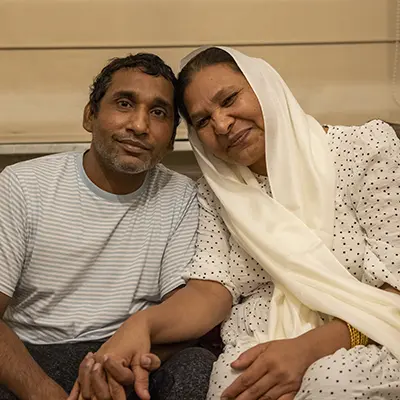- As South African Parliament considers “hate speech” bill, free speech legal experts highlight the dangers of criminalizing expression.
- ADF International experts address Parliament; "The bill is unconstitutional, dangerous and not in line with international human rights standards”.
CAPE TOWN (21 September 2023) – Addressing the South African Parliament’s Committee on Security and Justice, ADF International lawyers submitted that a proposed “hate speech” law, entitled the Prevention and Combatting of Hate Crimes and Hate Speech Bill, would violate the human right to free speech with egregious consequences for the country’s democracy. The free speech experts provided legal arguments as to why the bill is in violation of international human rights law.
The bill, initially proposed in 2018 and now in its final stage of parliamentary debate, states that, any person who communicates with the intention to “be harmful or to incite harm” and to “promote or propagate hatred” is guilty of “hate speech”. Both “harm” and “hatred” are defined with vague and subjective criteria. The penalty for the offense is a fine and/or up to 8 years imprisonment. The effect would be to restrict free speech in South Africa to inoffensive speech alone, thereby contravening international legal protections.
Free speech is broadly protected in international human rights law. South African National Dr. Georgia Du Plessis, Legal Officer for ADF International, states the following regarding the proposed bill:
“South Africa has a complex and hard-won history of human rights protections, and it is imperative that we honour that legacy at this crucial juncture. The proposed ‘hate speech’ bill would engender innumerable human rights abuses by censoring free speech with criminal penalties”.
“Free speech is the cornerstone of a democratic society; without it there can be no democracy. Moreover, it is not just inoffensive speech that is protected in international law, but also speech that offends or provokes. We must reject this censorious bill and ensure that the law in South Africa promotes freedom of expression so that human rights and diversity of opinion can flourish.”
“Ideas should be disputed by ideas, not attacked by the state”
Paul Coleman, ADF International Executive Director, also addressed the Parliament.
“The proposed bill is overbroad and ambiguous, with severe implications for the basic human right to share your opinions or beliefs. No one should be punished under the law for peaceful expression. This is the hallmark of a free society,” states Coleman, who is the author of ‘Censored: How European Hate Speech Laws are Threatening Freedom of Speech’.
Coleman adds: “It is the responsibility of governments to foster free speech if society is to thrive, not squash it. Ideas should be debated with more ideas, not attacked by the state”.
Not criminalizing “hate speech,” but rather speech that people “hate”
In the African National Congress party introduced the bill to criminalize so-called “hate speech”. The bill has drawn much criticism, as the effect would be to punish speech subjectively viewed as offensive by some. Daniela Ellerbeck of human rights group Freedom of Religion South Africa (FORSA) has noted that the bill is not criminalising “hate speech,” but rather criminalising speech that people “hate”.
ADF International, a global legal advocacy organization working in defense of fundamental freedoms, submitted two legal briefs during the Parliament’s public consultation period. Now, the bill is open for public oral submissions in the second parliamentary chamber (the National Council of Provinces), and therefore in its final stage.
“‘Hate speech’ laws are vague and subject to the ideological and subjective interpretation dominant in the country. The South African bill is not in line with international human rights standards,” Dr. Du Plessis concludes.
“Hate speech” trial against Finnish parliamentarian serves as warning
In the presentation to the South African parliament, Coleman highlighted the recent criminal prosecution of Päivi Räsänen in Finland. The longstanding parliamentarian and former Minister of the Interior stood trial on August 31, 2023, for the second time, on charges of “hate speech,” which is criminalized in Finland. The charges were based on a 2019 Twitter post in which she expressed her beliefs about marriage and sexuality, quoting the Bible. She additionally was charged for comments on a 2019 radio show and 2004 church pamphlet, which she had authored on the same topic. After Räsänen was unanimously acquitted at the Helsinki District Court in March 2002, the prosecution appealed the verdict. As of now, Räsänen is awaiting the appeals court verdict.
“The prosecution of Päivi Räsänen should serve as a clear warning for governments worldwide. Once the state gets involved in the business of criminalizing peaceful speech, there is no logical stopping point, and we end up with protracted legal battles designed to name and shame perceived offenders of the state’s orthodoxy. This has a serious chilling effect on the rest of society, and extremely problematic consequences for democracy,” states Coleman, who is serving on Räsänen’s legal team for ADF International.
Should the Bill pass through the National Council of Provinces successfully, it will be signed by the President and become law binding upon all citizens of South Africa.













